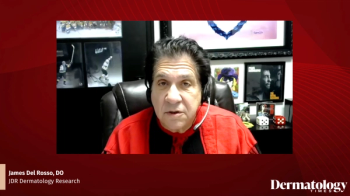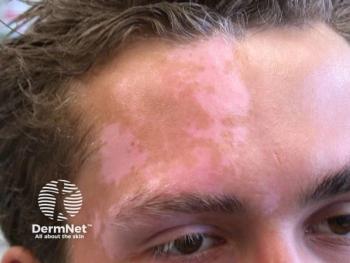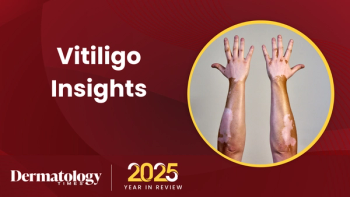
Efficacy and Safety of Ruxolitinib Cream in Adolescent Patients with Vitiligo: Pooled Analysis of the 52-Week TRuE Phase 3 Studies
At the SPD 2022 47th annual meeting, investigators share data on the treatment of ruxolitinib for this chronic autoimmune disease.
For adolescents, vitiligo (which occurs when pigment-producing cells die or stop functioning, resulting in skin depigmentation) can carry a heavy psychosocial burden. Investigators David Rosmarin, MD, Julien Seneschal, MD, PhD, and Pearl Grimes, MD et al shared the results of their study on the use of the cream formulation of the Janus kinase (JAK 1/JAK 2 inhibitor) ruxolitinib.
In 2 randomized, double-blind, vehicle-controlled, 52-week phase 3 studies in adults and adolescents who had vitiligo, ruxolitinib demonstrated considerable repigmentation. The Topical Ruxolitinib Evaluation in Vitiligo Study 1 and 2 (TruE-V1, TruE-V2) was conducted in North America and Europe, with patients 12 years and older diagnosed with nonsegmental vitiligo with depigmentation covering body area, including facial. Patients used ruxolitinib cream twice daily for 24 weeks, after which the patients could apply 1.5% of the cream through week 52.
Adverse events (AEs) in adolescents occurred in 12.9% of patients, while serious AEs occurred in only 1.4% of patients, with none considered related to treatment. Furthermore, efficacy results were similar to those in the adult population.
The results proved positive, with adolescent patients with nonsegmental vitiligo achieving substantial repigmentation with ruxolitinib cream vs vehicle at week 24, with a higher proportion of patients responding to the cream at week 52. Overall, ruxolitinib was well tolerated, with no severe adverse events considered related to treatment. Dermatologic practitioners should consider the positive outcomes of this study when setting up a treatment plan for their patients with vitiligo.
Reference
Rosmarin D, Seneschal J, Grimes P, et al. Efficacy and safety of ruxolitinib cream in adolescent patients with vitiligo: pooled analysis of the 52-week TRuE-V Phase 3 Studies. SPD 2022 47th Annual Meeting. Poster presentation. July 8, 2022. Indianapolis, Indiana.
Newsletter
Like what you’re reading? Subscribe to Dermatology Times for weekly updates on therapies, innovations, and real-world practice tips.










